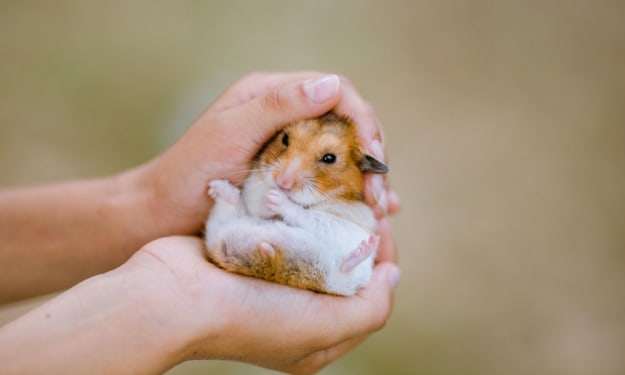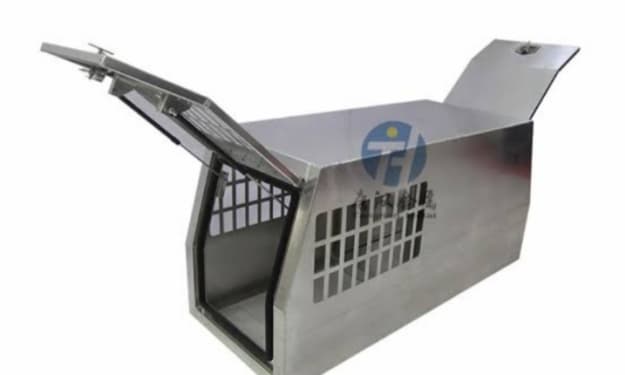The Ultimate Ferret Diet and Nutrition Guide
The Amazing Guide

Ferrets are fascinating and energetic pets that require a specialized diet to stay healthy. As obligate carnivores, ferrets have unique nutritional needs that differ significantly from other small pets like cats and dogs. Providing the right diet is crucial for supporting your ferret's overall wellbeing and longevity.
In this comprehensive guide, we'll dive deep into the essential components of a ferret's diet, explore the best commercial and homemade food options, and share expert tips on feeding, portion control, and nutritional supplementation. Whether you're a new ferret owner or looking to optimize your pet's diet, this guide has you covered.
Understanding Ferret Nutrition
Ferrets are classified as "obligate carnivores," meaning they require a diet that is almost exclusively animal-based. In the wild, ferrets would prey on small rodents, birds, and other small animals. Their digestive system has evolved to efficiently process and utilize the high protein and fat content found in these prey items.
The key nutritional requirements for ferrets include:
High Protein Content
Ferrets need a diet that is very high in protein, typically 35-40% or more on a dry matter basis. Protein provides the essential amino acids that support muscle development, organ function, and overall health.
Moderate Fat Content
Ferrets also require a moderate amount of fat, generally 15-20% on a dry matter basis. Fats serve as a concentrated energy source and help absorb fat-soluble vitamins.
Low Carbohydrate Content
Ferrets have a very limited ability to digest and utilize carbohydrates. Their diet should be low in carbs, ideally less than 5% on a dry matter basis.
Balanced Vitamins and Minerals
In addition to the macronutrients, ferrets need a variety of essential vitamins and minerals to support their unique physiology. This includes vitamins A, B, C, and E, as well as minerals like calcium, phosphorus, and iron.
Feeding a diet that closely matches these nutritional requirements is crucial for maintaining your ferret's health and preventing common dietary-related issues like insulinoma, adrenal disease, and metabolic bone disease.
Choosing the Right Commercial Ferret Food
The easiest way to ensure your ferret's dietary needs are met is by feeding a high-quality, commercially-formulated ferret food. These specialized diets are designed to provide the optimal balance of protein, fat, and carbohydrates that ferrets require.
When selecting a commercial ferret food, look for the following key characteristics:
High Protein Content
The first five ingredients should be animal-based proteins like chicken, turkey, or fish. Avoid foods with plant-based proteins like corn, soy, or wheat as the primary ingredients.
Moderate Fat Content
Aim for a food with 15-20% fat on a dry matter basis. Excessive fat can lead to obesity and other health issues.
Low Carbohydrate Content
The carbohydrate content should be less than 5% on a dry matter basis. Ferrets have a limited ability to digest and utilize carbs.
Fortified with Vitamins and Minerals
The food should be supplemented with a complete array of essential vitamins and minerals to support your ferret's overall health.
Some top-rated commercial ferret food brands that meet these criteria include:
- Marshalls Ferret Food
- Wysong Ferret Epigen
- Totally Ferret
- Zupreem Premium Ferret Diet
- Kaytee Forti-Diet Pro Health Ferret
When transitioning your ferret to a new commercial food, do so gradually over the course of 7-10 days to avoid digestive upset. Start by mixing the new food with the old in increasing ratios until your ferret is fully acclimated to the new diet.
Homemade Ferret Diets
While commercial ferret foods are the easiest and most convenient option, some owners opt to prepare homemade diets for their ferrets. This approach allows for more control over the ingredients and can be a good choice for ferrets with specific dietary needs or sensitivities.
Raw Meat-Based Diets
One popular homemade option is a raw meat-based diet, often referred to as a "whole prey" diet. This mimics the natural diet of wild ferrets by incorporating a variety of raw meats, organs, and bones. Some key considerations for a raw diet include:
- Use a variety of protein sources like chicken, turkey, rabbit, and quail
- Include organ meats like liver and heart for added nutrients
- Grind or chop the meat and bones to an appropriate texture
- Supplement with calcium, vitamins, and minerals as needed
- Cooked Meat-Based Diets
An alternative to raw feeding is a cooked meat-based diet. This involves lightly cooking the protein sources to kill any potential pathogens while still preserving the nutritional value. Cooked diets may be a better option for ferrets with sensitive stomachs or owners who prefer not to feed raw.
Homemade Diet Considerations
Regardless of whether you choose a raw or cooked approach, homemade ferret diets require careful planning and monitoring to ensure your pet is getting all the necessary nutrients. It's highly recommended to work closely with an exotic animal veterinarian or veterinary nutritionist when formulating a homemade diet.
Some key factors to consider include:
- Achieving the proper macronutrient ratios (high protein, moderate fat, low carb)
- Sourcing high-quality, fresh ingredients
- Properly preparing and storing the food
- Supplementing with vitamins, minerals, and other essential nutrients
- Monitoring your ferret's weight, body condition, and overall health
Homemade diets can be a great option for ferrets, but they require a significant time commitment and specialized knowledge to execute properly. Commercial ferret foods remain the easiest and most convenient way to meet your pet's nutritional needs.
Feeding Frequency and Portion Control
Ferrets have a very fast metabolism and a short digestive tract, which means they need to eat frequently throughout the day. In the wild, ferrets would graze on small prey items continuously. As pets, this translates to needing multiple meals per day.
- Feeding Frequency
- The recommended feeding schedule for pet ferrets is:
- 2-3 meals per day, spaced 4-6 hours apart
- Free-choice access to food between meals
This allows your ferret to eat smaller, more frequent meals to fuel their high energy levels. Leaving food available at all times also helps prevent the blood sugar crashes and hypoglycemia that can occur in ferrets.
Portion Control
Determining the appropriate portion size for your ferret is important to prevent obesity and other health issues. As a general guideline:
- Adult male ferrets should eat 4-6 tablespoons of food per day
- Adult female ferrets should eat 3-5 tablespoons of food per day
These amounts can vary based on your ferret's age, activity level, and overall health status. Monitor your ferret's body condition and adjust portions as needed to maintain an ideal weight.
It's also a good idea to weigh out your ferret's daily food allowance and distribute it across their scheduled meals. This helps ensure they are getting the right amount and prevents them from overeating.
Supplemental Nutrition
While a high-quality commercial or homemade ferret diet should provide the majority of your pet's nutritional needs, supplementation can be beneficial in certain situations. Some common ferret supplements include:
Vitamins and Minerals
Ferrets require a delicate balance of vitamins and minerals to support their health. If feeding a homemade diet, you may need to provide a vitamin/mineral supplement to ensure your ferret is getting all the necessary nutrients.
Probiotics
Probiotic supplements can help maintain a healthy gut microbiome and support digestion, especially during times of stress or dietary changes.
Omega-3 Fatty Acids
Adding omega-3 fatty acids, like those found in fish oil, can help reduce inflammation and support skin and coat health.
Treats and Enrichment
Offering small amounts of high-quality, animal-based treats can provide mental stimulation and bonding opportunities. Just be sure to limit treats to no more than 20% of the overall diet.
When introducing any new supplements, work closely with your veterinarian to determine the appropriate type and dosage for your individual ferret. Overfeeding certain nutrients can be just as problematic as deficiencies.
Common Dietary Issues in Ferrets
While a balanced, species-appropriate diet is crucial for ferret health, there are a few common dietary-related issues that owners should be aware of:
Insulinoma
Insulinoma is a type of pancreatic tumor that causes excessive insulin production, leading to dangerous drops in blood sugar (hypoglycemia). Ferrets with insulinoma may require more frequent feedings and specialized dietary management.
Adrenal Disease
Adrenal disease is another common endocrine disorder in ferrets, often linked to improper diet and nutrition. A diet too high in fat or carbohydrates can contribute to the development of adrenal tumors.
Metabolic Bone Disease
Ferrets require a specific calcium-to-phosphorus ratio in their diet to maintain healthy bones and teeth. An imbalance can lead to metabolic bone disease, causing skeletal deformities and fractures.
Obesity
As mentioned earlier, ferrets that are fed too much or don't get enough exercise can become obese. Obesity increases the risk of other health problems like insulinoma, heart disease, and joint issues.
Staying vigilant about your ferret's diet and monitoring their body condition can help prevent or manage these common dietary-related conditions. If you notice any concerning changes in your ferret's health, be sure to consult your veterinarian right away.
Feeding Tips and Tricks
To make mealtime a breeze for both you and your ferret, here are some additional tips and tricks:
Variety is Key
Rotate between different high-quality commercial ferret foods or homemade recipes to provide dietary variety and prevent boredom.
Separate Food and Water
Keep your ferret's food and water bowls in separate locations to discourage them from playing in or contaminating the water.
Puzzle Feeders and Enrichment
Use puzzle feeders, food-stuffed toys, or hidden food caches to encourage natural foraging behaviors and mental stimulation.
Monitor Intake and Weight
Weigh your ferret regularly and track their food intake to ensure they are maintaining a healthy body condition.
Avoid "People Food"
Steer clear of feeding your ferret table scraps, sugary treats, or other human foods that can upset their delicate digestive system.
By following these best practices, you can ensure your ferret is getting the proper nutrition to thrive while also making mealtime an engaging and enriching experience.
Conclusion
Providing the right diet is one of the most important aspects of caring for a healthy, happy ferret. As obligate carnivores, ferrets have very specific nutritional needs that must be met to support their unique physiology and prevent common dietary-related health issues.
Whether you choose a high-quality commercial ferret food or opt to prepare a homemade diet, the key is to focus on meeting your ferret's high protein, moderate fat, and low carbohydrate requirements. Supplement with essential vitamins, minerals, and other nutrients as needed, and always work closely with your veterinarian to ensure your ferret's dietary needs are being fully addressed.
By following the guidance in this comprehensive ferret diet and nutrition guide, you can set your furry friend up for a long, healthy, and enriched life. Happy feeding!






Comments
There are no comments for this story
Be the first to respond and start the conversation.